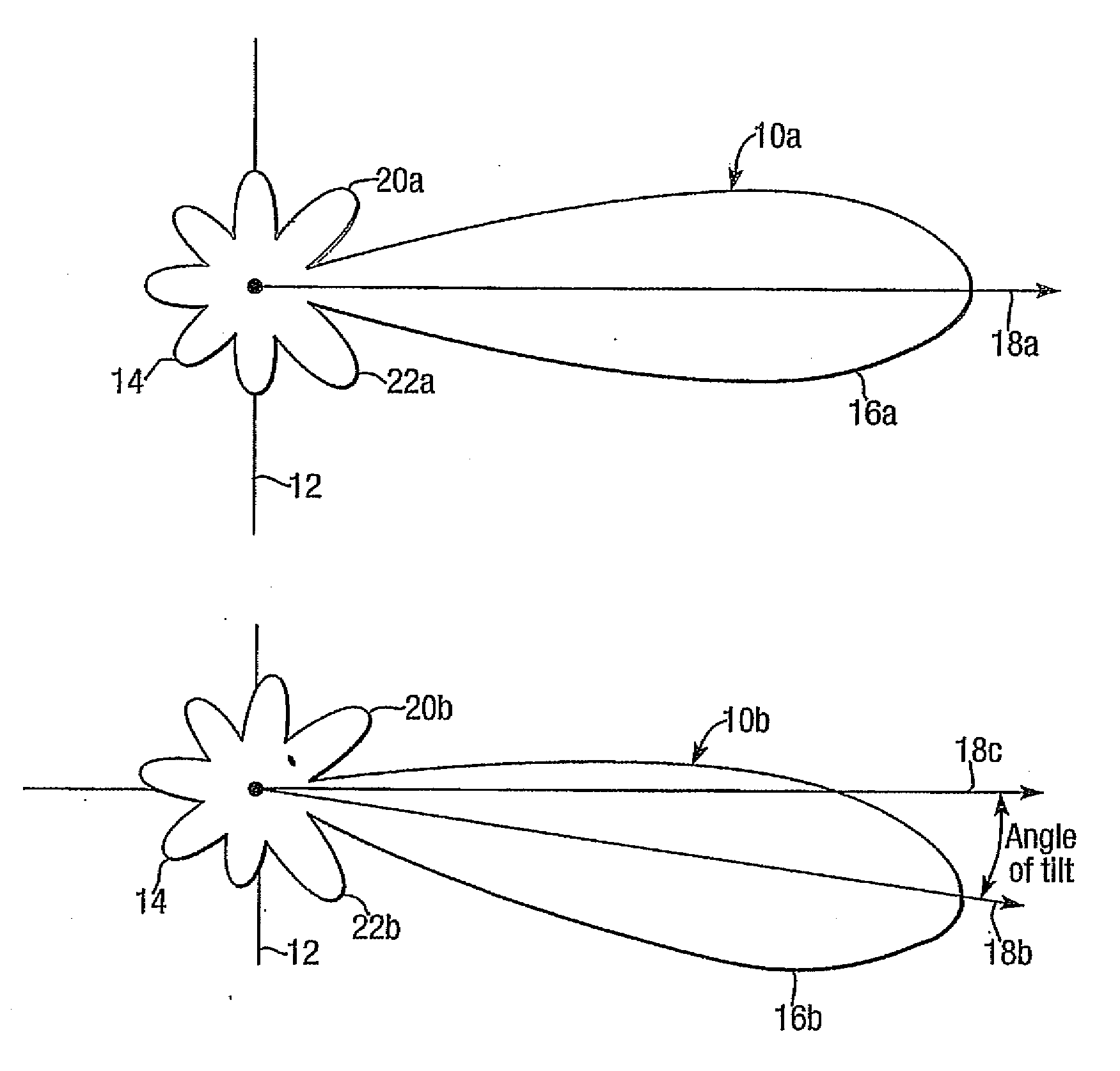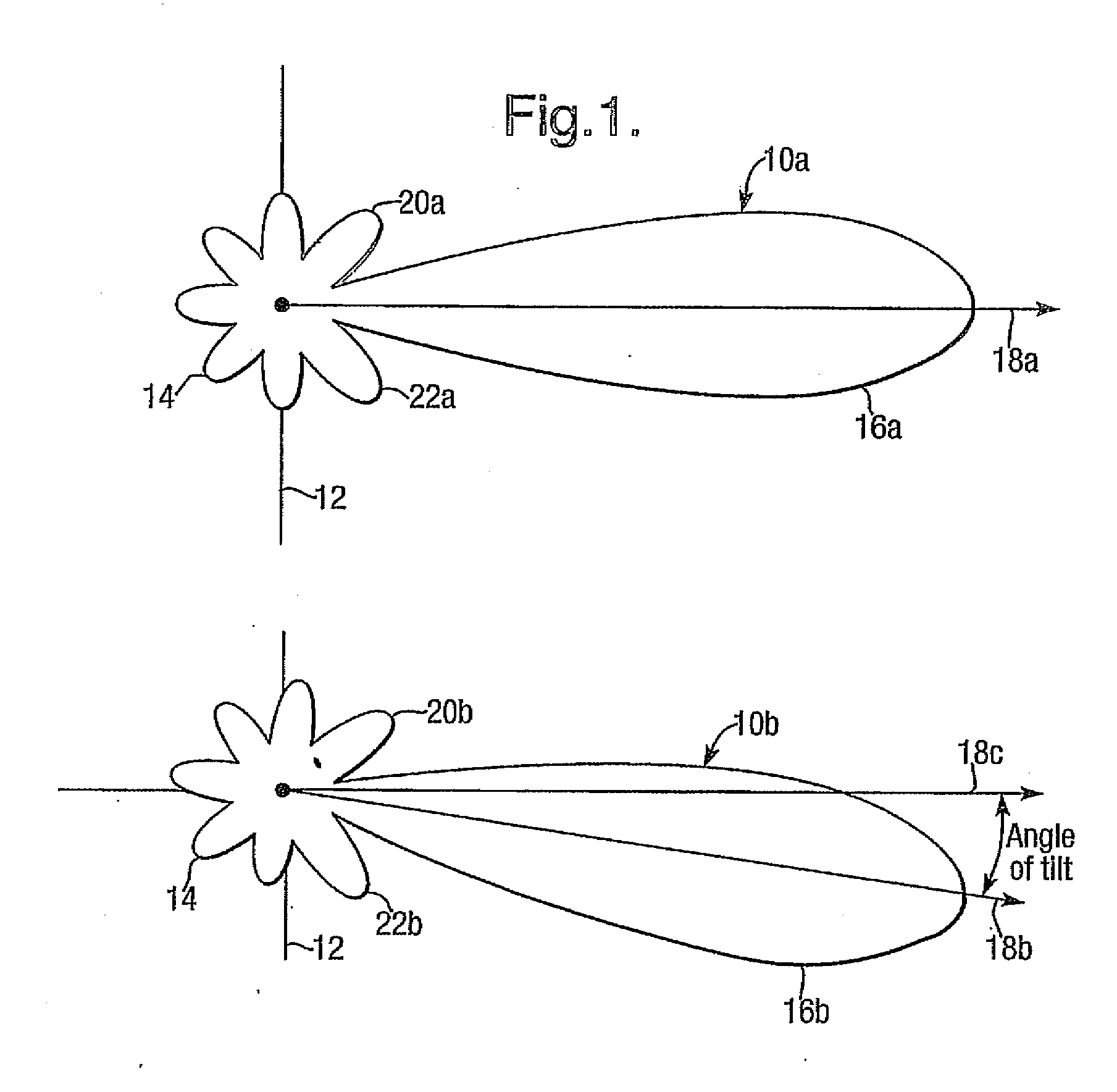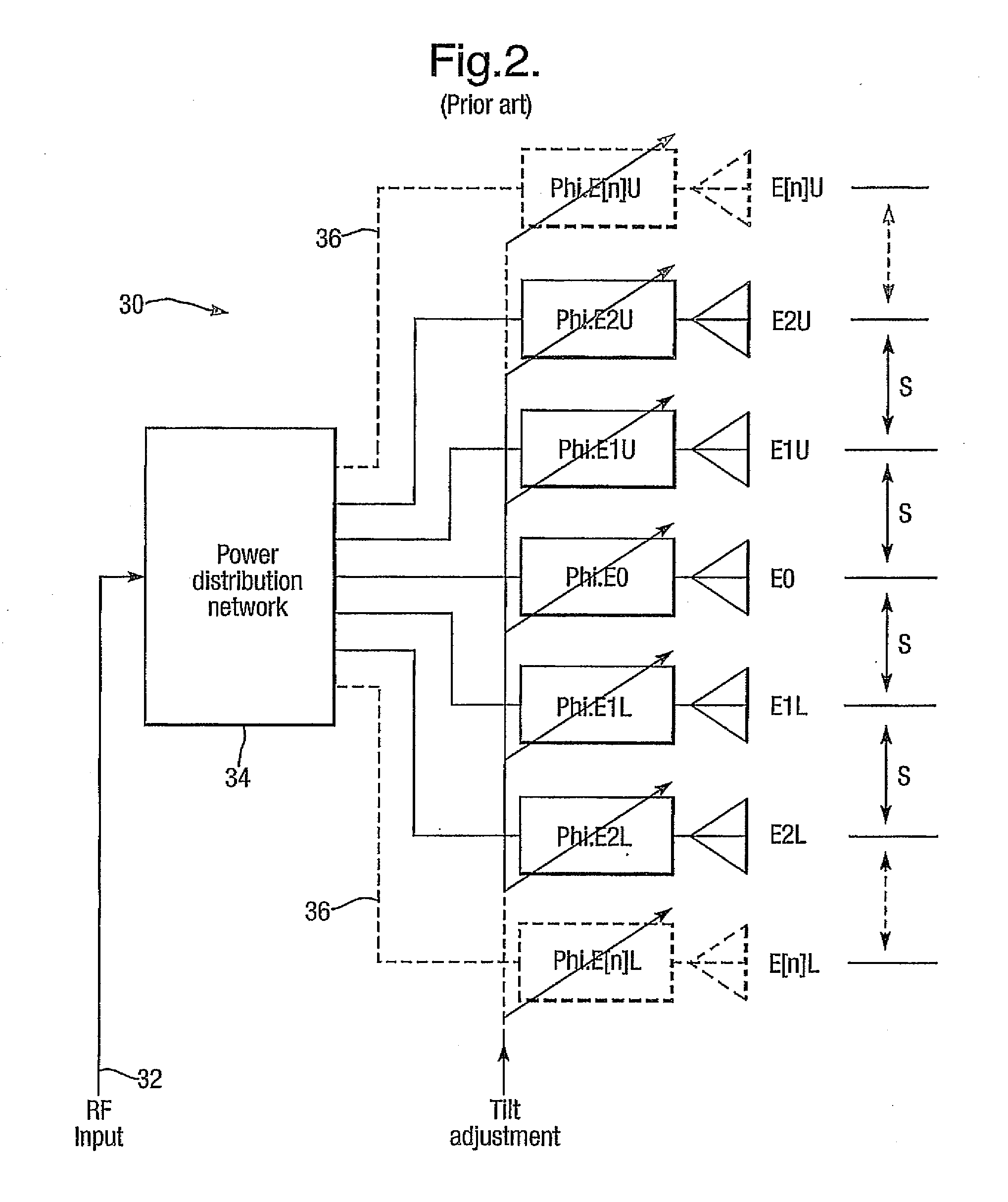Phased array antenna system with variable electrical tilt
a phased array antenna and variable technology, applied in the direction of antenna support/mounting, electrical equipment, antenna details, etc., can solve the problems of increasing antenna cost and complexity, compromising the performance of the antenna, and reducing the boresight gain proportionally to the cosin
- Summary
- Abstract
- Description
- Claims
- Application Information
AI Technical Summary
Benefits of technology
Problems solved by technology
Method used
Image
Examples
Embodiment Construction
[0067]Referring to FIG. 1, there are shown vertical radiation patterns (VRP) 10a and 10b of an antenna 12 which is a phased array of individual antenna elements (not shown). The antenna 12 is planar, has a centre 14 and extends perpendicular to the plane of the drawing. The VRPs 10a and 10b correspond respectively to zero and non-zero variation in delay or phase of antenna element signals with array element distance across the antenna 12 from an array edge. They have respective main lobes 16a, 16b with centre lines or “boresights”18a, 18b, first upper sidelobes 20a, 20b and first lower sidelobes 22a, 22b; 18c indicates the boresight direction for zero variation in delay for comparison with the non-zero equivalent 18b. When referred to without the suffix a or b, e.g. sidelobe 20, either of the relevant pair of elements is being referred to without distinction. The VRP 10b is tilted (downwards as illustrated) relative to VRP 10a, i.e. there is an angle—the angle of tilt—between main b...
PUM
 Login to View More
Login to View More Abstract
Description
Claims
Application Information
 Login to View More
Login to View More - R&D
- Intellectual Property
- Life Sciences
- Materials
- Tech Scout
- Unparalleled Data Quality
- Higher Quality Content
- 60% Fewer Hallucinations
Browse by: Latest US Patents, China's latest patents, Technical Efficacy Thesaurus, Application Domain, Technology Topic, Popular Technical Reports.
© 2025 PatSnap. All rights reserved.Legal|Privacy policy|Modern Slavery Act Transparency Statement|Sitemap|About US| Contact US: help@patsnap.com



